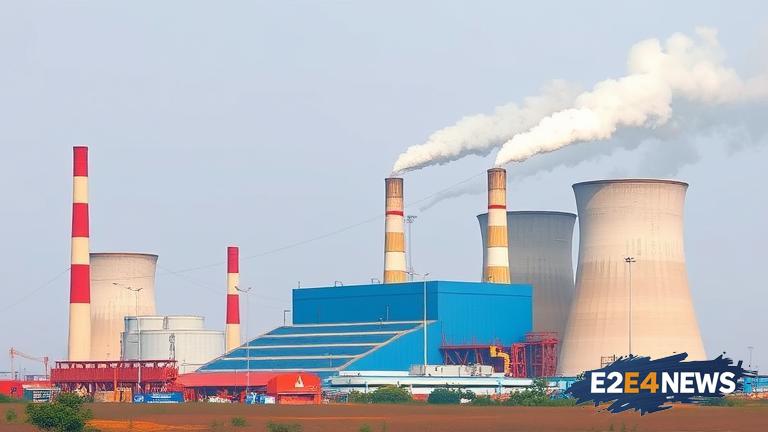The Indian government has recently announced that thermal plants in the country will be exempt from installing anti-polluting systems, but only if they can provide proof of compliance with the existing regulations. This move is seen as a significant step towards reducing pollution in the country. The government has been under pressure to take action against pollution, and this exemption is expected to provide some relief to the thermal plants. However, the exemption will only be granted to those plants that can demonstrate that they are already complying with the existing regulations. The government has made it clear that the exemption is not a blanket waiver, and plants will still be required to meet the pollution standards. The decision is expected to affect over 400 thermal plants in the country, which are currently required to install anti-polluting systems. The government has also announced that it will be conducting regular inspections to ensure that the plants are complying with the regulations. The exemption is seen as a positive step by the industry, which has been arguing that the cost of installing anti-polluting systems is too high. However, environmentalists have expressed concerns that the exemption could lead to an increase in pollution. The government has assured that it will be monitoring the situation closely and will take action if necessary. The exemption is also expected to have a significant impact on the economy, as it will reduce the cost of production for the thermal plants. The government has also announced that it will be providing financial assistance to the plants that are required to install anti-polluting systems. The decision is seen as a balancing act between the need to reduce pollution and the need to support the economy. The government has made it clear that it is committed to reducing pollution, but it also needs to consider the economic implications of its decisions. The exemption is expected to be in place for the next few years, during which time the government will be monitoring the situation and reviewing the regulations. The government has also announced that it will be conducting public consultations to gather feedback on the exemption and the regulations. The decision is seen as a significant step towards reducing pollution in the country, and it is expected to have a major impact on the thermal plants and the economy.
